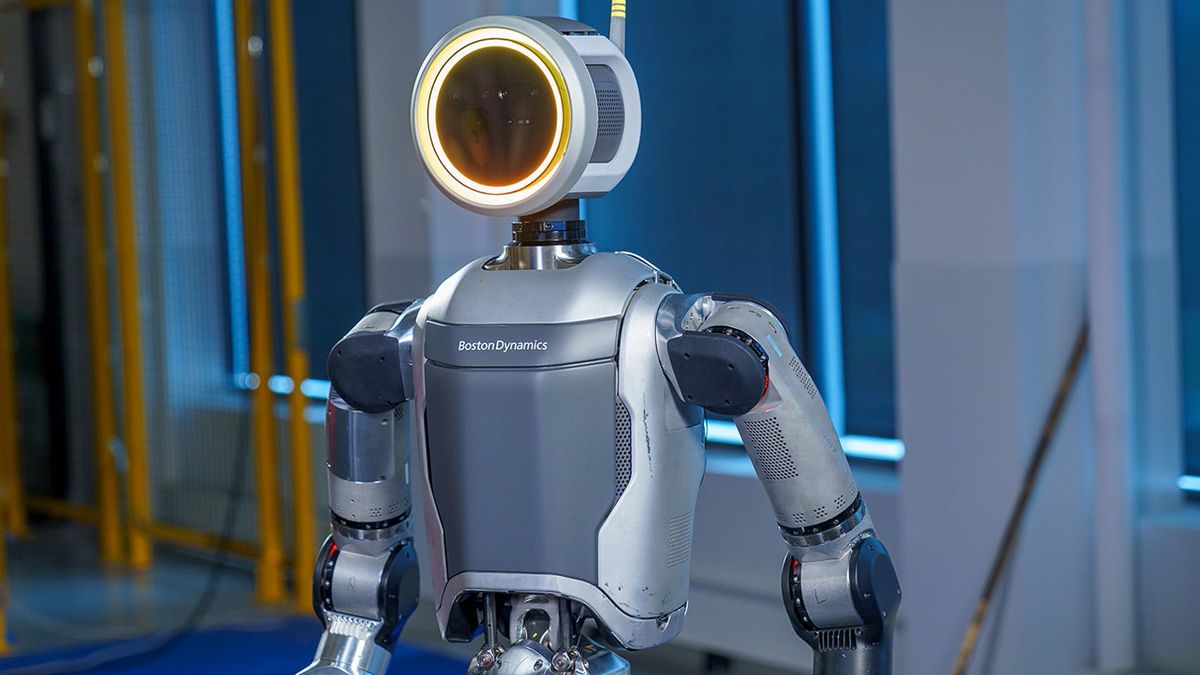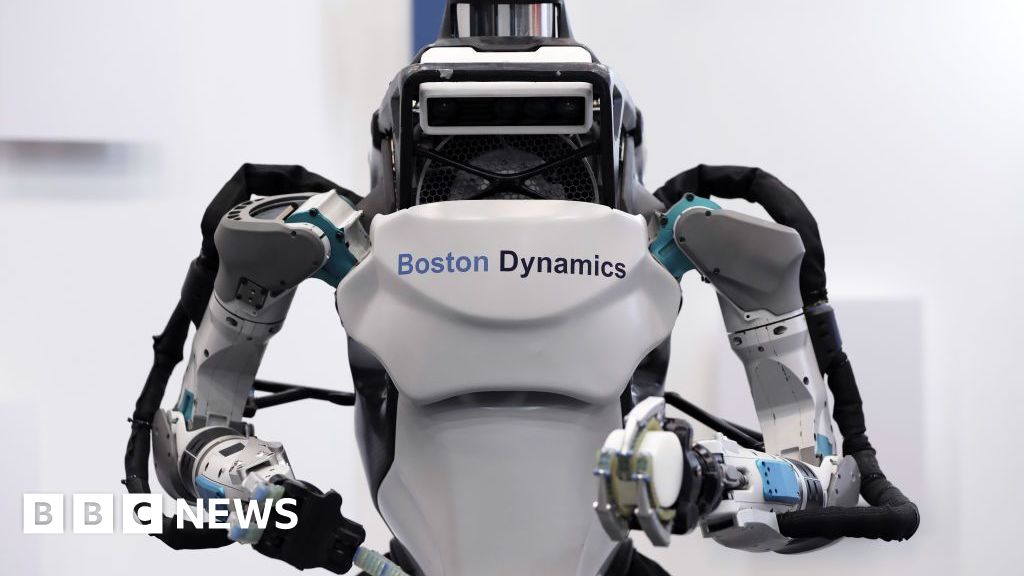
Boston Dynamics has revealed a new fully electric iteration of its humanoid robot, Atlas, designed for real-world applications. The company's partnership with Hyundai is key to this transition, aiming to enhance automotive manufacturing capabilities. The new electric Atlas is touted to be stronger and have a broader range of motion than previous versions, with plans for new gripper variations. Despite the positive outlook from the company, the release sparked skepticism on social media, drawing comparisons to the fictional Terminator franchise and generating mixed reactions.

Boston Dynamics says goodbye to its humanoid robot, Atlas, in a send-off video showcasing its abilities like running, jumping, dancing, and parkour. The retirement of Atlas marks a significant moment for the company as the robot gained widespread attention on YouTube with viral videos. Originally a project for DARPA, Atlas was based on the Petman project to test protective clothing performance in hazardous environments.

Atlas is a bipedal humanoid robot primarily developed by the American robotics company Boston Dynamics with funding and oversight from the U.S. Defense Advanced Research Projects Agency (DARPA). The robot was initially designed for a variety of search and rescue tasks, and was unveiled to the public on July 11, 2013.

Boston Dynamics, Inc., is an American engineering and robotics design company founded in 1992 as a spin-off from the Massachusetts Institute of Technology. Headquartered in Waltham, Massachusetts, Boston Dynamics has been owned by the Hyundai Motor Group since December 2020, but having only completed the acquisition in June 2021.Boston Dynamics develops of a series of dynamic highly mobile robots, including BigDog, Spot, Atlas, and Handle. Since 2019, Spot has been made commercially available, making it the first commercially available robot from Boston Dynamics, while the company has stated its intent to commercialize other robots as well, including Handle.

Marc Raibert (born December 22, 1949) is the Executive Director of the Boston Dynamics AI Institute, a Hyundai Motor Group organization that is focused on solving the most important problems in robotics and artificial intelligence to achieve fundamental advances in the engineering and science of robotics. Raibert was the founder, former CEO, and now Chairman of Boston Dynamics, a robotics company known for creating BigDog, Atlas, Spot, and Handle.Before starting Boston Dynamics, Raibert was professor of Electrical Engineering and Computer Science at MIT and an associate professor of Computer Science and Robotics at Carnegie Mellon University. At CMU he founded the Leg Laboratory (1980), a lab that helped establish the scientific basis for highly dynamic robots. Raibert developed the first self-balancing hopping robots, a significant step forward in robotics. Raibert earned an Electrical Engineering, BSEE from Northeastern University in 1973 and a PhD from MIT in 1977. His dissertation was titled "Motor control and learning by the state space model" and was advised by Berthold Horn and Whitman Richards. Raibert is a Founding Fellow of the Association for the Advancement of Artificial Intelligence. He was elected a member of the National Academy of Engineering in 2008 for biomechanically motivated analysis, synthesis, control, and application of multi-legged robots.Raibert's dream is to advance bipedal and quadrupedal robotics to a supernatural state. Boston Dynamics was acquired by Google in December 2013. On the acquisition, Raibert commented that he was "excited by Andy Rubin and Google’s ability to think very, very big... with the resources to make it happen." In March 2016, Google began offering Boston Dynamics for sale. The company was acquired by SoftBank in June 2017. In 2020, Boston Dynamics was acquired by Hyundai Motor Group.

During a SWAT standoff in Massachusetts, a suspect shot a Boston Dynamics robot dog named Roscoe three times with a rifle. The robot provided room clearance and situational awareness capabilities, preventing the need to send humans or real dogs into the house. Critics have scrutinized the use of robot "dogs" for being overpriced and ineffective.

A Massachusetts State Police robot dog named Roscoe was shot during a standoff with a barricaded suspect in Barnstable. The suspect fired at the robot, disabling its communication, and also shot at another robot and an outdoor swimming pool before being arrested by police. The incident showcased the benefits of using mobile robots like Spot in tactical missions involving armed suspects, preventing the need for human operators to be directly involved. Boston Dynamics, the company that made the robot, confirmed it was the first time one of their robots had been shot while on duty.

A robotic dog named Roscoe, part of the Massachusetts State Police Bomb Squad, was shot multiple times by an armed suspect during a standoff in Barnstable. The suspect barricaded himself, fired at officers, and disabled the robot's communication. Despite the incident, the robotic dog prevented the need for human operators to enter the dangerous situation and potentially saved lives. Boston Dynamics, the company behind the robot, emphasized the role of mobile robots like Spot in life-saving missions. The suspect was eventually arrested, charged with attempted murder, and the damaged robot was sent for repairs.
/cdn.vox-cdn.com/uploads/chorus_asset/file/25404945/atlas_yellow.jpg)






Engadget

Engadget

Brian Heater

Alex Wilhelm

https://www.facebook.com/bbcnews

Tech Radar

Business Insider

The Verge

NBC

Peter Hess

PANORA

Wikipedia

Wikipedia

Wikipedia

PANORA

PANORA

PANORA